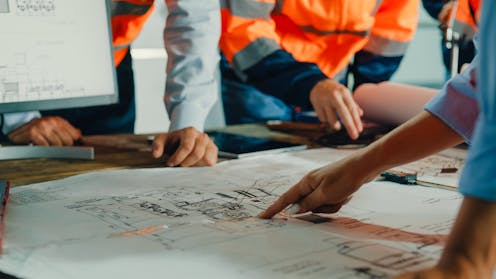
An Internet of Things aseptic carton collection machine installed at Emart Everyday / Courtesy of Tetra Pak Korea
By Ko Dong-hwan
Aseptic carton recycling is gaining momentum in Korea through innovative initiatives.
One standout effort is the "O-Myeol-Wan" (aseptic carton recycling) Challenge, which encourages consumers to recycle cartons using Internet of Things (IoT)-enabled collection machines at 20 Emart Everyday stores nationwide.
Participants earned 10 times the usual Shinsegae Points per carton, with additional rewards for top contributors. The initiative quickly gained traction among eco-conscious consumers seeking both environmental and financial benefits.
Aseptic cartons, often discarded as waste, hold significant value when properly recycled. They can be transformed into tissues, hand towels and even building materials. However, recycling efforts in Korea have been hindered by limited awareness and insufficient drop-off locations. Addressing these challenges, Tetra Pak, a global leader in food packaging, is driving systemic change through its The Right Move campaign.
Launched in 2024, the campaign has significantly boosted aseptic carton recycling through partnerships with companies and organizations. Last year, 939 tons of cartons were collected nationwide, marking a major step in resource circulation.
A key initiative under this campaign is the O-Myeol-Wan Challenge, developed in collaboration with Emart Everyday, Maeil Dairies and Oysterable. IoT-enabled collection machines installed in stores educate consumers, while expanding collection infrastructure.

Aseptic Carton Collection Bin at Nono Shop in Itaewon / Courtesy of Tetra Pak Korea
Tetra Pak is also working with local governments to further these efforts. In Seoul’s Mapo District, the company has been participating in sustainability programs for over a decade, deploying collection bins across apartment complexes, public facilities and office buildings. These efforts are now expanding into more retail locations, including hypermarkets and convenience stores, making recycling more accessible to consumers.
Nationwide expansion plans are also underway. Cities like Siheung and Jeonju Eco City are setting the standard, with Jeonju increasing its collection units from 103 in January 2024 to 553 by the end of the year. Additionally, Tetra Pak has introduced a parcel pickup service through the ECOYA Earth app, allowing consumers to schedule doorstep collections for added convenience.
More collection points are emerging through cooperatives like Hansalim and Dure Coop, as well as zero-waste shops such as Almang Market and Nono Shop. Some local community centers have also launched collection programs, though policies vary by municipality.
While infrastructure continues to improve, consumer participation remains essential. With Tetra Pak, businesses and local governments collaborating, small actions can drive significant change. By making recycling a daily habit, Korea moves closer to a more sustainable future.


















 English (United States) ·
English (United States) ·